Oleg Rubel is a professor of public administration at the National Academy of Sciences of Ukraine, in Odesa, who is engaged in the economics of nature management and sustainable development. Honorable Mr. Rubel Oleg, as the Head Leader of 5T Odesa for the Mediterranean Project Circlecon, could you please provide an overview of your academic background and the field of study you specialize in and how is related to the project of Circlecon?
Yes, I have a connection with the Circular Economy. In 1999 I graduated from the Odessa Environmental University with a degree in Applied Ecology. Then I worked for about 20 years in the department of economic and environmental problems of coastal regions at the Institute of Market and Economic and Environmental Research of the National Academy of Sciences of Ukraine. During this period, I had access to many theories and scientific approaches: sustainable development, the Green Deal, the Circular Economy.
What motivated you to pursue a career in academia, specifically in your area of expertise?
Science is an opportunity to be creative and see results. In addition, scientific creativity is a chance to do a lot for society. Also for me it has always been of scientific interest to combine the problems of Ecology and Economics. We are working very hart since many years to educate people in the Values of the Circular Economy and Blue Economy. Green Growth is a matter which concerns all of us.
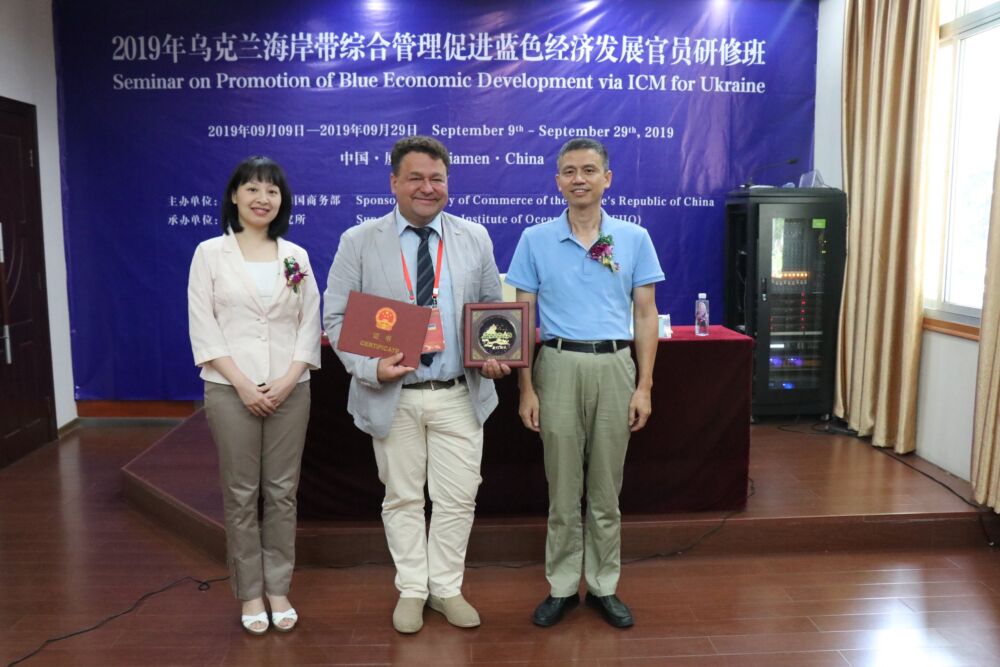
Can you share some of your current research projects or areas of focus? What inspired you to pursue these topics?
Of course, the Cirklecon project is only part of the activity. But now I am focused on the issues of assessing the damage to the nature of Ukraine from the consequences of Russia’s military invasion of Ukraine. The project “Knowing Circular Economy in Black Sea Basin” (the BSB – “CIRCLECON”), which is being carried out under the auspices of the EU-funded Joint Operational Programme “Black Sea Basin 20142020”, aims at promoting Circular Economy model in Black Sea basin to help Bulgaria, Georgia, Greece, Turkey and Ukraine.
As a communication Manager of Circlecon we saw also many posts in your social media campaign based also to the war among Ukraine and Russia and all the consequences’ that war has in humanity and in economical domino effect in European Union and world wide.
We tried to consider the main principles of the Circular Economy, 17 principles of sustainable development, 8 directions of the Green Deal. But it was on these days that attacks on Ukraine became more active. The dam of the Kakhovka reservoir was destroyed. Therefore, we went from the opposite: with each type of damage to the marine environment, communal infrastructure, biodiversity, we illustrated the Circular Economy. In total, the Ukrainian team made more than 100 news items, covering more than 750,000 respondents. The critical situation of the Black Sea due to Russian strikes has become a viral topic in the region.
What messages do you want to deliver to the people, related to the war and to the values of the Circular Economy?
The overall goal of BSB-CIRCLECON is to promote territorial coordination of environmental protection and sustainable growth in the Black Sea Basin.
The idea is to encourage as many actors as possible to embark on the transition to the circular economy, going beyond waste prevention and management to Waste as a Valuable Resource.
The 1st Specific Objective is to present the case for increasing the uptake of the circular economy globally and the EU’s role in this regard. The foreseen project’s CEWG are intended to feature as part of an emerging toolbox which would look at how to increase the dissemination, learning and adoption process of CE from BSB actors. Key actors like local government & business support organisations will be intensively informed and follow a learning process in order to play the role of the outputs multipliers
The 2nd Specific Objective focuses on waste management, reduction and prevention. The task is to examine how to make waste prevention and management under CE model more regional specific, and how to improve the implementation of waste policy on the ground. Increased awareness on environmental challenges and good waste management practices related to river and marine litter within BSB are crucial for the Programme; this will be achieved through a well-planned, organised, extensive dissemination campaign.
The 3rd Specific Objective intents to establish a permanent coordination towards anticipating BSB environmental challenges. Action plans will be developed; Demonstration and pilot actions will be the lighthouses for obtaining the expected outcomes; moreover, an EGTC is going to be established as to secure the future cooperation
What consequences has the war also to our eco- system generally and also quite specific about Ukraine?
The war has catastrophic consequences, the size of which does not fit in the head. This is more than 300 billion hryvnias, or 7-8 billion euros at the very least. The biggest loss was the loss of land due to the mining of more than 40% of the territory of Ukraine.
How does your research contribute to the broader field or address current challenges within your discipline?
What means in reality to be a communication Manager of such a huge program like Circlecon during the war? Can you describe us one of the most difficult days?
Of course, one of the most difficult days is the beginning of the war on February 24, 2022. when the Russians rushed to surround the city of Odessa, but the defenders of Nikolaev blocked the way for the invaders. We experience great difficulties from blackouts, lack of electricity. No access to important territories. Because of the constant raids, there is no time to sleep, but we gather and do our work every day, knowing that it will support the optimism and authority of our country.
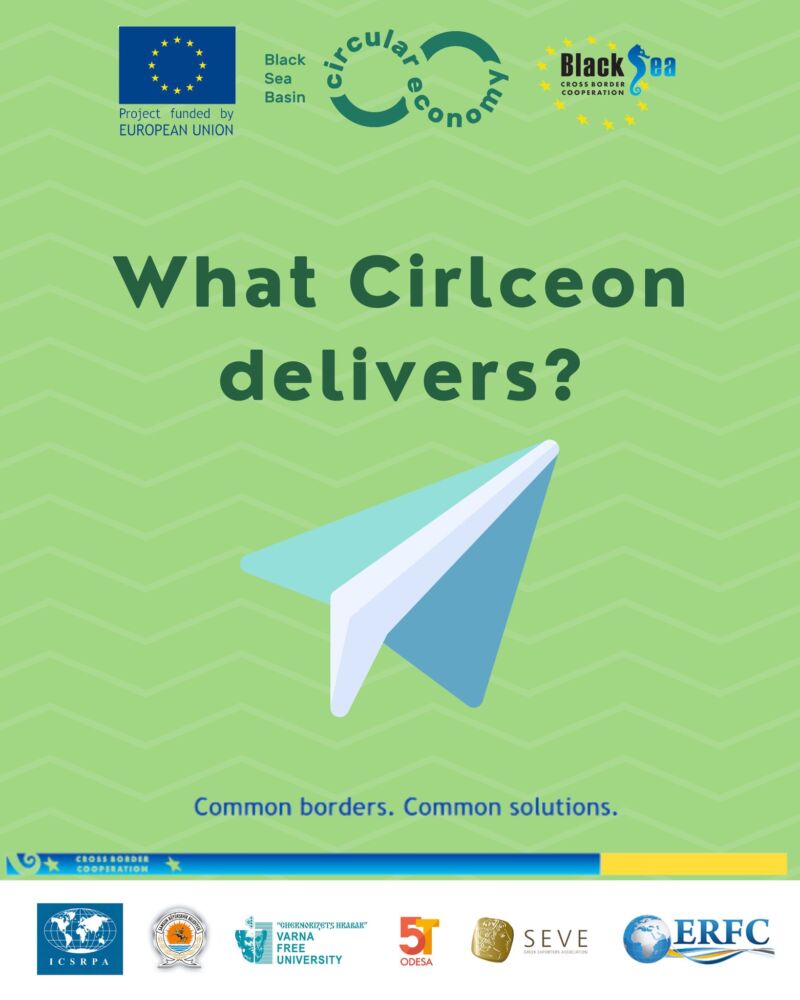
In your opinion, what are the most significant developments or advancements in your field in recent years? How have they impacted your work related to the Circlecon?
Could you discuss any collaborations or partnerships you have established with other researchers or institutions, both nationally and internationally during the Circlecon project?
Of course, we have strengthened our ties with all partners, but especially with the Varna Open University!!! Together with new partners from Greece, we went to the consortiums of the new stage of projects of the transnational cooperation NEXT.
Can you describe your Work Partners? What did they teach you during your collaboration? How was the Final Event of Circlecon which took place in Thessaloniki, during the Fordward Green Expo? Although you couldn’t join in appearance, how was it for you even to be there in a hybridical way?
We took a joint course on the Circular Economy, it was organized by the Varna Free University. All partners gained new knowledge and experience. 7 participants from Ukraine received Certificates! I would like also to mention our Work Partners in CIRCLECON project.
https://www.youtube.com/live/WViinpbWEyo?feature=share
1) Varna Free University
Varna Free University “Chernorizets Hrabar” is the largest private university in Bulgaria. It is an established academic centre that combines the training of Bulgarian and international students in priority areas for the country and creates an internationally convertible and competitive scientific and academic product. It teaches over 5,000 students in more than 60 bachelor’s and master’s degree programmes and 29 PhD programmes. The university has three faculties – Faculty of Law, Faculty of Architecture and Faculty of International Economics and Administration.
In 2019, Varna Free University “Chernorizets Hrabar” received fourth institutional accreditation for the maximum 6-year period with a grade 9.21 out of 10. The document was issued by the National Evaluation and Accreditation Agency. The grade is among the highest given to the higher education schools in this country.
The high accreditation assessment, the prestigious labels of the European Commission for quality of the educational process – DS Label, for the implementation of the European Credit Transfer and Accumulation System – ECTS Label and for excellence in research – the HR Logo – are proof that Varna Free University is competitive in the European and global educational space.
The European Commission also awarded the university the Erasmus Charter for Higher Education for a second seven-year period. VFU “Chernorizets Hrabar” is among the first three Bulgarian universities to sign “Magna Charter 2020” – for academic freedom and independence.
The greatest pride and achievement of the university is the assessment by the students of the quality of the educational process at the university. The students of Varna Free University “Chernorizets Hrabar” gave an overall grade Excellent 5.63 for the quality of the educational process taking place at the university.
Greek Exporters Association -SEVE
The Greek Exporters Association (SEVE) was established in 1975 as a non-profit organization and is currently the largest association of exporting companies in Greece.
SEVE’s members include manufacturers, distributors and service providers of a broad spectrum of products and services. The membership base of SEVE includes more than 750 active and dynamic exporting companies and business groups throughout the Greek territory, with 55,000 employees and 16-billion-euro export turnover, corresponding to 50% of the Greek exports.
European Regional Framework for Cooperation (ERFC)
ERFC, taking stock from a host of EU networks of excellence, in which its founders participated or initiated, is established in a converge region (Western Greece), with an ever expanding network of offices in other Greek & EU Regions.
ERFC, aims at serving as a best example of bottom-up Institution Building effort towards EU Integration and regional competitiveness, playing a key role, contributing in the implementation of EU Regulations and Directives through its participation in EU funded networks & projects, at interregional level. Mainstreaming EU project recommendations into National & Regional policies is its ultimate goal.
Territorial Co-operation is enhanced as ERFC’s members and associates are key EU Integration executive persons, Public Bodies, Academic Institutions and Civil Societies, primarily from EU but also from the rest of the word, securing the creation of economies of scale.
Further structuring of ERFC is expected to take place in the frame of EGTC _ European Grouping for Territorial Co-operation.
International Centre for Social Research and Policy Analysis
The International Centre for Social Research and Policy Analysis (ICSRPA), an independent think tank specializing in policy analysis, economic competitiveness and management consultancy, promotes the processes of conceptual change, reforms and development in Georgia. The center has strong background and experience in conducting training courses for Entrepreneurship development and implementing policy oriented projects under the auspices of the international donors including European Commission, United Nations Democracy Fund, German Agency for International Cooperation (GIZ), Norwegian Institute of International Affairs (NUPI), UNDP Georgia, Konrad Adenauer Foundation etc. Since it was founded and officially registered in 2004, the Centre has managed to preserve its status as an independent and impartial organization. The Centre is located in Tbilisi, but operates across Georgia. ICSRPA conducts training on variety topics to build capacity of local stakeholders. The Centre also conducts research and analysis to identify target groups’ needs and/or tendencies for development, to elaborate country specific reports, action plans, strategies and other documents, aimed at policy authorities and decision makers.
Samsun Metropolitan Municipality
Samsun Metropolitan Municipality is the state organization that runs the municipal affairs of the province’s border of Samsun.
Samsun Metropolitan Municipality, with its 24 departments and more than 2000 personnel who are competent in their fields, is the local administration unit that carries out municipal affairs in the entire province of Samsun, which has a surface area of 1,055 km2. The establishment of Samsun Municipality was with the decision to implement the modern municipality system, which was taken as a result of the westernization movements of the Ottoman Empire, together with the Kanun-i Esasi (the Ottoman basic law). During that period Samsun was a city of Canik District and was governed by mayors appointed from Istanbul. Samsun City, which is among the provincial municipalities, was administered in this way until 1893. In 1893, the mayor came to power for the first time with the election of the people. The municipality, which continued to exist after the proclamation of the Republic, became a metropolitan municipality with the decree-law number 504 adopted on September 2, 1993. Its name was changed to Samsun Metropolitan Municipality, and its powers and scope of duty were expanded. Finally, the scope of the law numbered 6360, which came into force in 2014, covered all 17 districts of Samsun, and of course us. 5T ODESA.
Municipal Institution “Grant Office “Odesa 5T”, Ukraine
What we do?
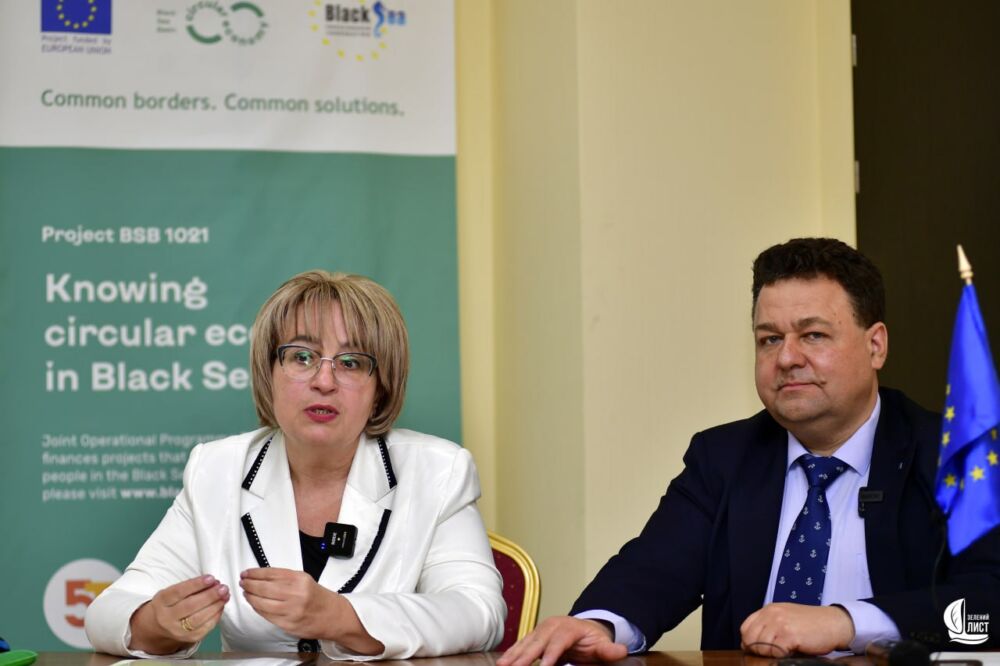
Prepare and submit grant projects and support their implementation, namely:
– Looking for priority grant/donor programs
– We study application requirements and eligibility criteria, guidebooks
– Interact with the Executive Committee of the Odesa City Council and public organizations in attracting grants
– Determine, together with organizations, priority areas for projects
– We prepare applications, prepare and submit packages of documents
– We support projects in the process of implementation.
As consider the Final event of Circlecon, it was quite sentimental for us to receive all this kindness and support about Ukraine. I really wish from the bottom of my heart to see our beautiful country free again and to recostruct our derams and our lives from the beginning.
In the following link you can see the Final Event:
ttps://www.youtube.com/live/3ZNIUsz4NwU?feature=share
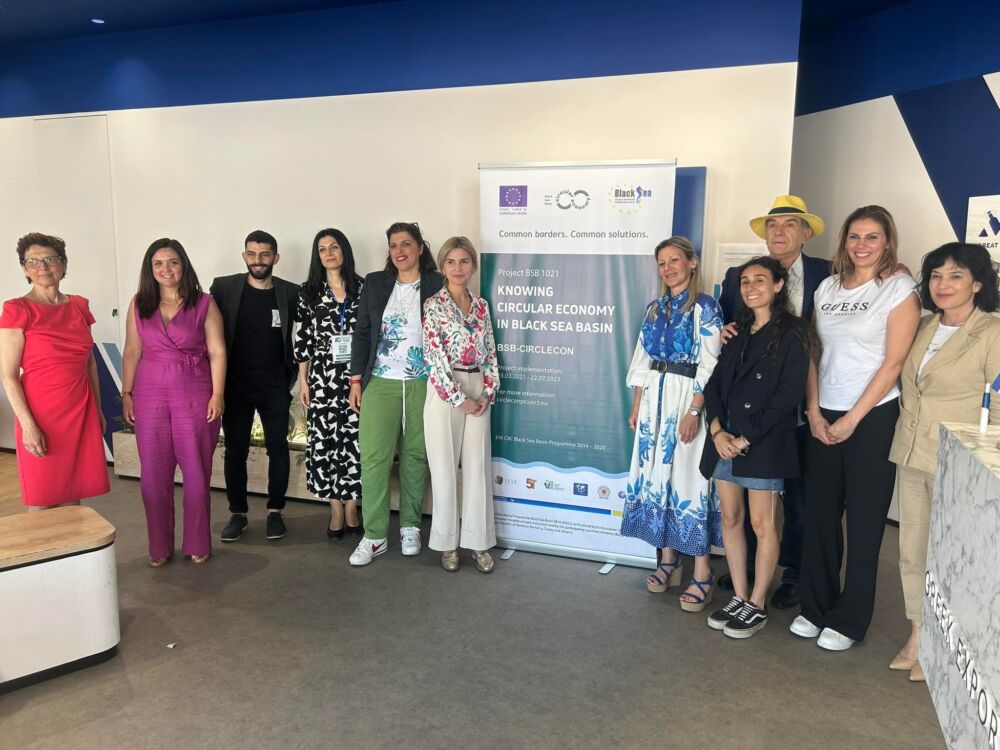
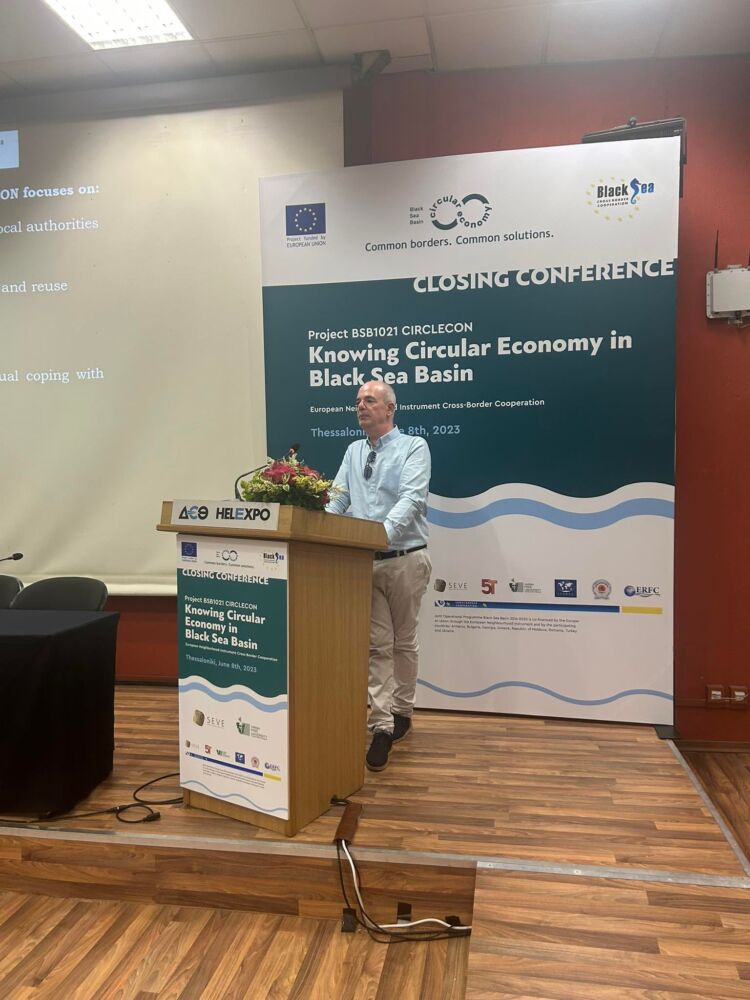
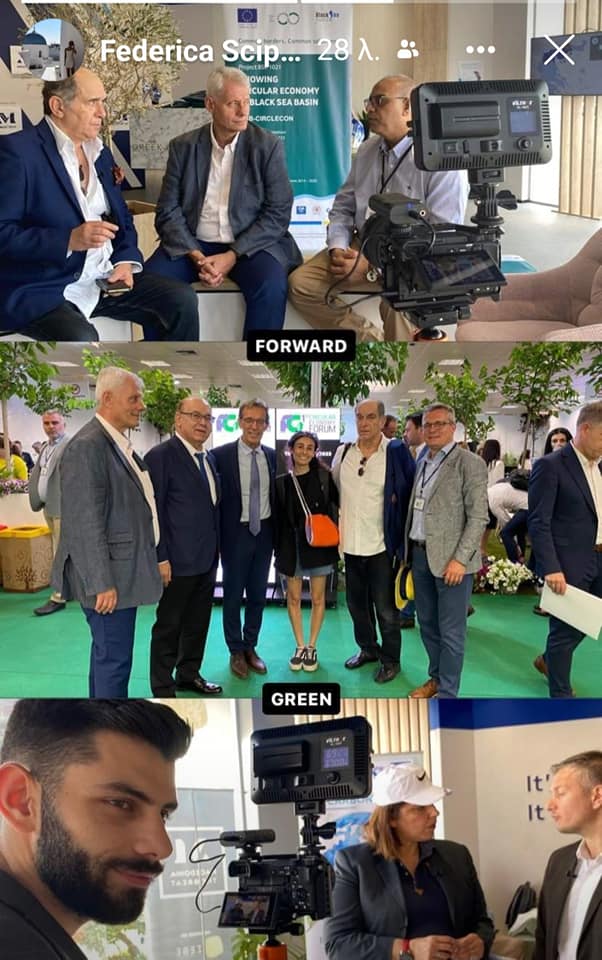
What role do you believe universities and professors play in driving innovation and societal progress also during the war that is your daily life?
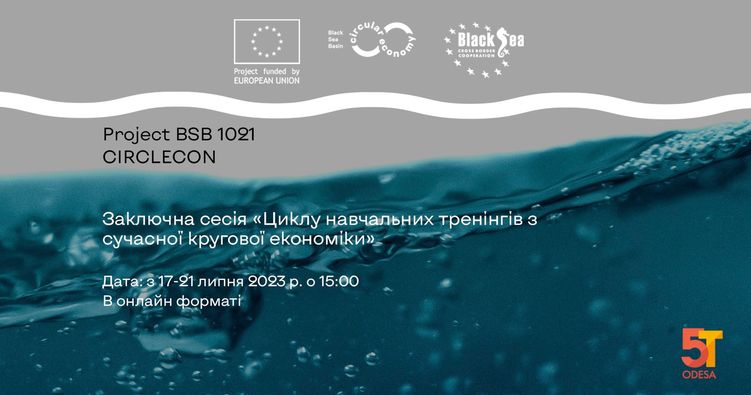
Of course, innovation is not just a matter of scientists. For their implementation, the Triple Helix principle should be used: scientists, business, administration. But now they are also adding a civil society and Ecologists. Of course, in times of war, innovations are introduced faster if it is related to defense. Let’s remember the Manhattan project. But of course the role of science is very important.
How do you incorporate your research findings into your teaching methods? Can you describe any innovative or effective teaching strategies you employ? Also, to the media factor. What made your media campaign to be so differentially special?
Digital learning and interactive methods play an increasingly important role. Science penetrates into education, and innovations fertilize science ….. I do not study much now, many students have gone abroad!
What advice would you give to students interested in pursuing a career in your field of study? What would be your advice also to a younger Media Manager?
I can say that they are on the right track and every year the relevance of the Circular Economy will increase. Whatever they do: waste, logistics, energy, tourism, architecture. Everywhere the principles of the Circular Economy will be implemented and grow!
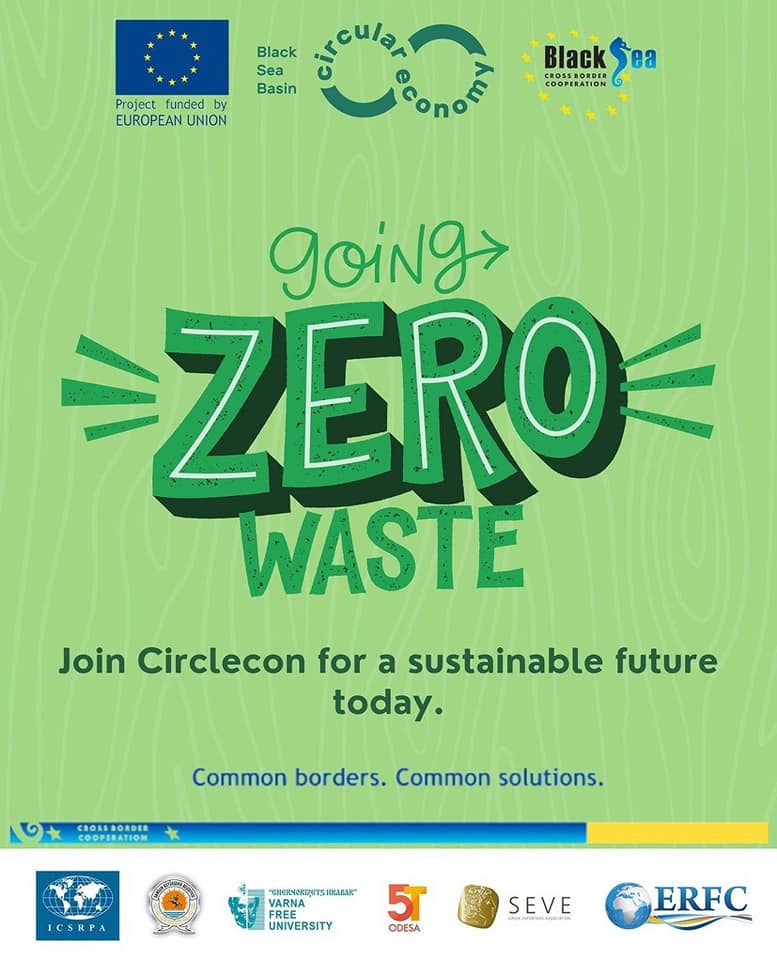
Climate change does not stop at borders. Therefore, European Groupings for Territorial Cooperation (EGTC) play a key role in reducing emissions and adapting to a changing climate. To identify common challenges. Why is so important the existence of EGTC and specifically about Ukraine?
European Groupings for Territorial Cooperation (EGTC) is, for now, a new tool for Ukraine. I think it will work at full capacity after the full entry of Ukraine as a member of the European Union. But the potential of this mechanism, the exchange of experience, the preparation of joint projects will still show itself!
As a professor in Ukraine, are there any unique challenges or opportunities you face in your academic work? Why 5T Odesa is so important to the Ukrainian people?
In my opinion, it is very important to combine scientific work with practical work. And in this case, I had a chance to make an excellent project on behalf of the Odessa municipality, which, of course, is a huge challenge. But also a great experience for all project team members. After all, of course, I did not act alone, but together with a wonderful team, the dream team of the 5T office.
How did you engage with the local community or contribute to society outside of your academic responsibilities all the values of Circlecon project?
I am not exaggerating the situation! Now all local authorities, all communities are under the pressure of military circumstances. But the experience of the project will allow Ukraine to successfully enter the Green Growth processes after the victory.
Can you discuss any notable achievements or awards or accomplishment’s during the Circlecon project?
The reward was the genuine interest of a huge number of the general public in the process of the information campaign. This response showed that our work is needed, and millions of people from the Black Sea region support Ukraine in its aspiration to the EU for freedom and democracy.
Despite that is the Network we have established also from other projects, like Greenland and the MOU we have signed quite recently for this purpose.
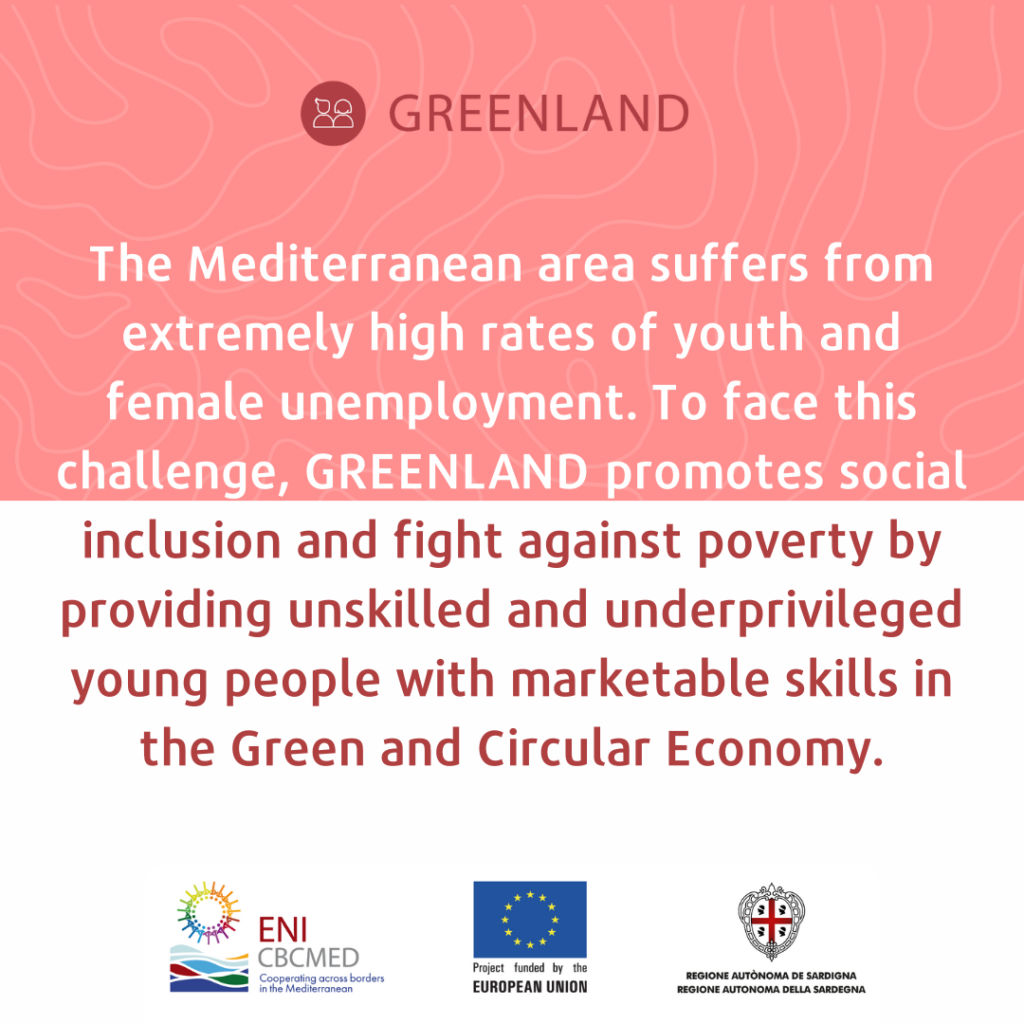
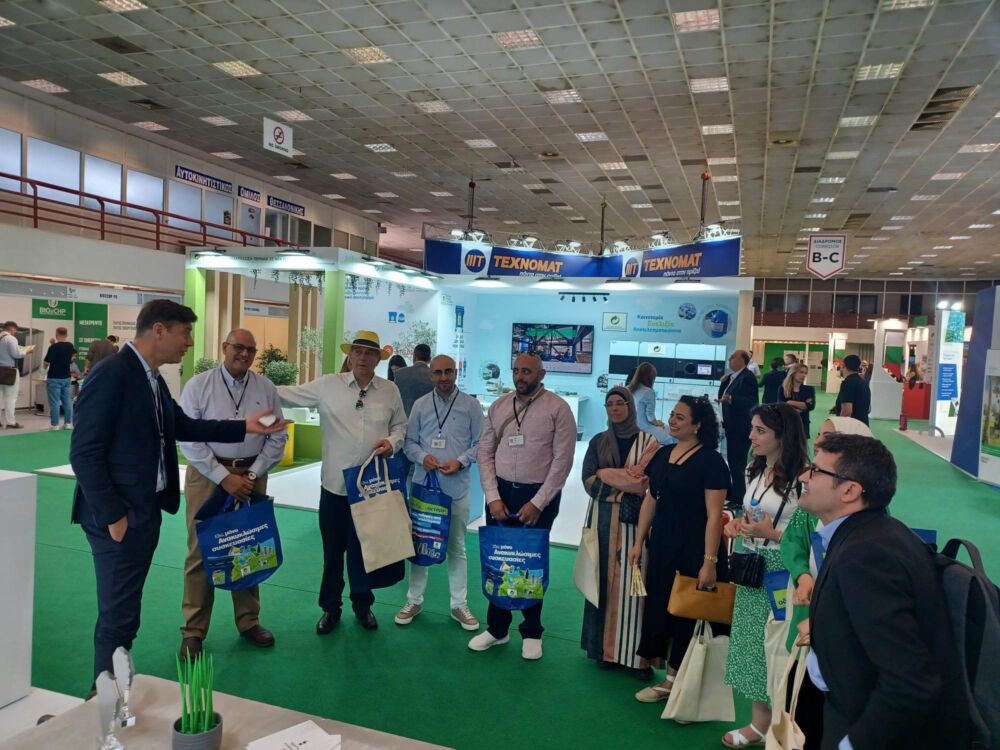
What do you wish for the future?
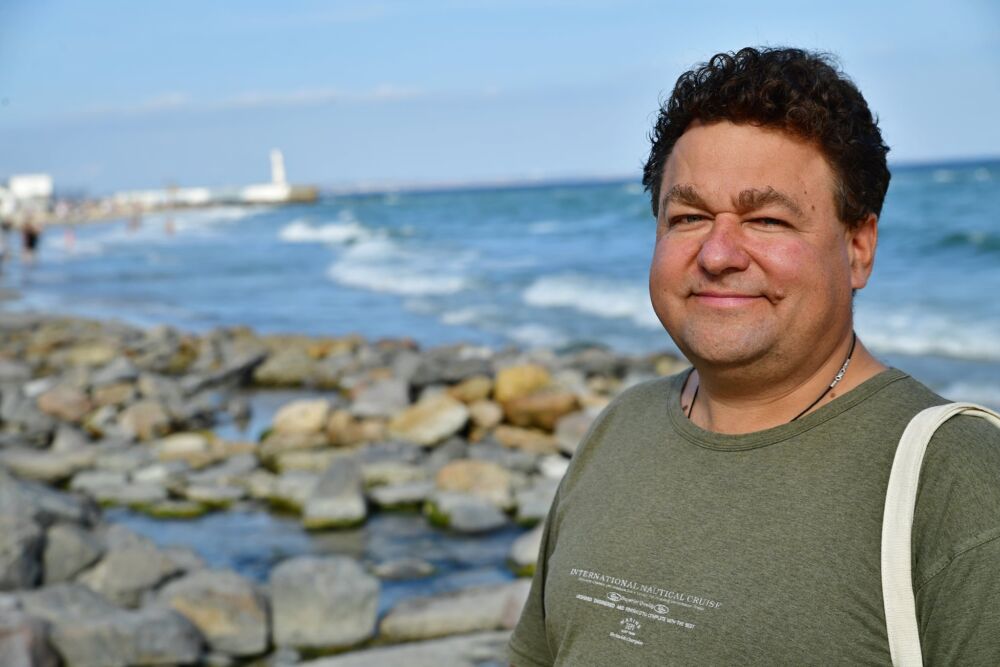
To see my country free again! «Slava Ukraini!»







